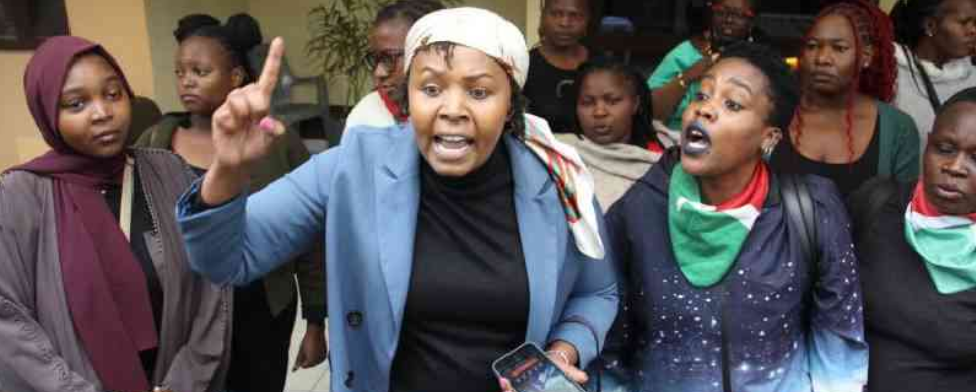How PBO Act reboots state NGO state engagement
- Irungu Houghton

- May 24, 2024
- 3 min read
Updated: May 25, 2024

President Ruto’s commencement of the Public Benefits Organisations Act (2013) caught most Kenyans by surprise. The Act is probably Kenya’s most neglected yet significant laws in Kenyan history. Now the Act has been operationalized, what does it mean for thousands of soon-to-be Public Benefits Organisations and the rest of the nation? Ezra Mbogori joins the weekly column to reflect on this
Despite being described as the oldest and most vibrant civil society in the East African region, Kenya’s 8,000 non-governmental organisations have been governed by a one-party state law for the last thirty-four years. Kenya was very different when the NGO Coordination Act (1990) was passed. Tensions between civil society organisations and the KANU government were at their worst. Gross human rights violations and grand corruption had turned the International Monetary Fund and the Paris Club against the Government and towards funding essential services delivered by NGOs.
Urban poverty was the new buzz word and organisations like Undugu Society were among the first NGOs to programme for the homeless and those denied their right to shelter. The NGO sector was a place of opportunity for those fresh out of university like us. Voluntarism was highly encouraged. Development financing covered both programme and operational costs, was multi-annual and spurred innovation and agility in a rapidly changing environment. Frightened by this power, the NGO Coordination Act was introduced to control the sector and prevent it from playing an accountability oversight role.
The enabling environment of the NARC Government and the promulgation of the 2010 constitution provided the conditions for rebooting civil society – state relations and the passing of the Public Benefits Organisations Act by the Tenth Parliament. With President Kibaki’s assent in 2013, the sector braced for the Act’s commencement. This was not to be. Furious at the role human rights organisations had played in protecting witnesses testifying against Post-Election Violence at the International Criminal Court, the new government turned the next three years into a nightmare.
The Jubilee Administration introduced amendments that sought to freeze and seize 85 per cent of NGO foreign funding, take over the Boards of NGOs and in one dramatic moment, de-register over 900 NGOs including some of the Administration’s fiercest critics. Fortunately, most of these attempts at communal punishment met resilient resistance and the sector survived.
President Ruto’s announcement that his administration had commenced the PBO Act during a very well attended CSO UN Summit for the Future on 10 May was a master stroke. He delivered on a United Democratic Alliance campaign promise and simultaneously has set the relationship between the state and civil society organisations on a new path.
The new (ish) law introduces a new enabling legal, regulatory, and institutional environment for the sector. It creates a single identity for a diverse range of civic organisations doing public benefits work to operate under a single act. It clearly frames the development, capacity building and advocacy roles of PBOs. It also holds them to higher levels of public disclosure, accountability and transparency standards aligned to Chapter 6 of the Constitution. It promotes a new sense of co-operation and shared responsibilities between the 47+1 governments, development partners and the public within a new self-regulatory code of conduct and a quasi-judicial Tribunal capable of addressing public complaints.
Given the historical mistrust and even trauma between NGOs and State, it is important that both embark on trust building activities. Further, that the rules and regulations yet to be developed build on and strengthen the Act, not undermine, or weaken it. It is also critical that any amendments do not squander a new possibility for a new PBO – State partnership or sabotage a Presidential initiative.
In Washington DC this week, the United States Government announced US$ 800 million financing towards the implementation of the PBO Act. With goodwill, this, and other funding available for PBOs, counties and the national government could kickstart better collaboration and partnership.
Let us wait and see.
Irũngũ Houghton is Amnesty International Kenya Executive Director and Ezra Mbogori is an internationally recognised NGO practitioner for over forty years and PBO Act proponent. They write in their personal capacity. Email: Irungu.houghton@amnesty.or.ke and limirimbogori@gmail.com
Search this site for several articles on the PBO Act over the last decade.




Comments